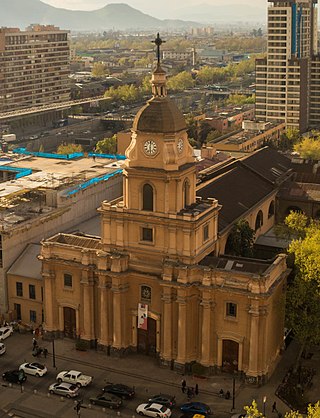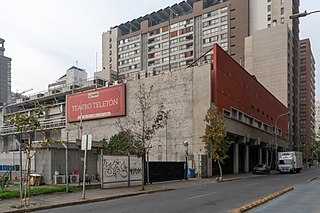Self-guided Sightseeing Tour #2 in Santiago, Chile
Legend
Guided Free Walking Tours
Book free guided walking tours in Santiago.
Guided Sightseeing Tours
Book guided sightseeing tours and activities in Santiago.
Tour Facts
13.3 km
291 m
Experience Santiago in Chile in a whole new way with our free self-guided sightseeing tour. This site not only offers you practical information and insider tips, but also a rich variety of activities and sights you shouldn't miss. Whether you love art and culture, want to explore historical sites or simply want to experience the vibrant atmosphere of a lively city - you'll find everything you need for your personal adventure here.
Activities in SantiagoIndividual Sights in SantiagoSight 1: Cerro Santa Lucía
Santa Lucía Hill, also known in Mapuche as Huelén Hill, is a small hill in the centre of Santiago, Chile. It is situated between Alameda del Libertador Bernardo O'Higgins in the south, Santa Lucía Street in the west and Victoria Subercaseaux on the east. An adjacent metro station is named after it. The hill has an altitude of 629 m and a height of 69 m over the surrounding area. The hill is the remnant of a volcano 15 million years old.
Sight 2: Fuente Neptuno
The source of Neptune is a monumental source located on the Santa Lucía hill, in the Chilean commune of Santiago Centro, dedicated to the Roman god of the seas, Neptune. The sculpture can be included in the so -called "industrial sculpture", for series of several copies from the same mold. He was commissioned by the Chilean State to France, specifically to the Val D´osne Foundry that takes as a model the one created in 1856-7 by the Frenchman Gabriel-Vital Dubray (1813-1892), and which became world popular during the international exhibition of London in 1862. Its initial destination was the central flag of the Alameda of the Delicias, being installed in 1859, when it was still the main capital walk and its appearance was far from the current one. It is the main ornamentation of entry into hill from Alameda, as part of the city's beautification works. Years later it was placed in the current location during the first century of independent Chile, differentiating itself in the architectural style of colonial chili. The initial design of the work was commissioned to the French architect Victor Henri Villeneuve, and then ended by the Chilean Benjamín Marambio.
Sight 3: Iglesia de San Francisco
The San Francisco Church is a Franciscan church on Avenida Libertador General Bernardo O'Higgins, in the downtown of Santiago de Chile. The church, along with the adjacent convent, is one of the oldest colonial-era buildings in the country. It has been resistant to about 15 earthquakes of magnitude over 7.
Sight 4: Museo de Arte Colonial de San Francisco
Museo Colonial is a historical, cultural and religious museum located in Santiago, Chile. The museum explores the colonial period of Chile and South America, with a collection of paintings, sculpture, furniture and other objects. Many of the pieces are religious, and were created in Peru, the former colonial capital. The museum also features a genealogical tree of the Franciscan Order which is "gigantic" in size and includes 644 miniature portraits.
Sight 5: Espacio de Memoria Londres 38
Londres 38 is a building that was used by the National Intelligence Directorate (DINA) as a detention and torture center for opponents of Augusto Pinochet's dictatorship. The facility is located in downtown Santiago, Chile, and was known in DINA's jargon by the code name Yucatán.
Sight 6: Casa de los Diez
The house of Los Diez is a large house located in the center of Santiago de Chile, built at the end of the colonial era and chosen in 1923 as the headquarters of the so-called Group of the Ten. Located on the corner of Santa Rosa and Tarapacá, it was declared a national monument in September 1997.
Sight 7: Teatro Cariola
The Cariola Theater is a theater located in the commune of Santiago, Province of Santiago, Metropolitan Region of Santiago, Chile. Built between 1949 and 1954 and inaugurated in the latter, it is considered the most important theater in Santiago after the Municipal. It was declared a national monument, under the category of Historical Monument, by Decree No. 548, of the Ministry of Education, on December 17, 2012 and published in the Official Gazette on January 24, 2013.
Sight 8: Basilica de los Sacramentinos
The Basílica de los Sacramentinos is a church in the Roman Catholic Archdiocese of Santiago de Chile. It administered by the Congregation of the Blessed Sacrament and its design was inspired by the Basilique du Sacré-Cœur in Paris. The main cupola of the church has a structural height of 69 m (226 ft).
Sight 9: Recabarren
Luis Emilio Recabarren Serrano was a Chilean political figure. He was elected several times as deputy, and was the driving force behind the worker's movement in Chile.
Sight 10: Paseo Bulnes
Paseo Bulnes is a pedestrian street in downtown Santiago. It runs from Alameda Avenue in the north to the Almagro Park in the south. The street is lined by buildings of uniform height and similar facades, which were built under an urban plan approved in 1937 and whose main purpose was the development of a government district around the La Moneda Palace. In 1939, the first zoning regulation plan for Santiago proposed the southward extension of the then Avenida Central with a large plaza south of La Moneda, known as Plaza Bulnes. The various buildings were built in an intensive campaign between 1940 and 1950.
Sight 11: Altar de la Patria
The Altar of the Homeland is a Chilean monument located under the Plaza de la Ciudadanía in Santiago de Chile, between Nataniel Cox and Zenteno streets. The work consists of a crypt located under where the "Eternal Flame of Freedom" was originally located, until its transfer to the Military School in 2004. It contains the remains of Chile's Supreme Director, Bernardo O'Higgins, and a timeline that tells the history of that country.
Sight 12: Bernardo O'Higgins
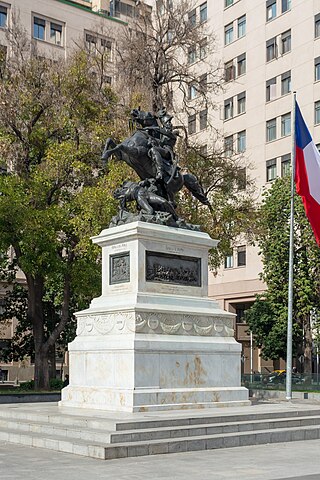
The monument to Bernardo O'Higgins is a sculptural bronze work on a marble base, which represents the moment when Bernardo O'Higgins crosses with his horse on an enemy defeated from the realistic troops in the battle of Rancagua in 1814. Find in La Alameda in front of the Palacio de La Moneda, in the Plaza de la Ciudadía de la Ciudad de Santiago, Chile.
Wikipedia: Monumento a Bernardo O'Higgins (Santiago de Chile) (ES)
Sight 13: Teatro Coliseo
The Teatro Coliseo is a concert hall located on Nataniel Cox Street next to the Plaza de la Ciudadanía, in the center of the city of Santiago, Chile. With two stalls, it has a capacity of 2500 people.
Sight 14: Palacio Ochagavía
The Ochagavía Palace is a building located in Santiago de Chile at 1516 Libertador Bernardo O'Higgins Avenue, on the corner of San Ignacio Street.
Sight 15: Palacio Irarrázabal
The Irarrázabal Palace or the Spanish Circle Palace is an old residential palace located in Santiago de Chile and current headquarters of the Spanish Circle Social Center of Santiago. It was designed by Chilean architect Alberto Cruz Montt for the Irarrázabal Fernández family in 1906.
Sight 16: Palacio Íñiguez
The Íñiguez Palace or Íñiguez Building is a building located in Santiago, the capital of Chile, on the corner of Avenida Alameda Bernardo O'Higgins and Calle Dieciocho. Built in 1908 for Eduardo Iñiguez Tagle and Loreto Undurraga as their residence, it was the work of architects and builders Alberto Cruz Montt and Ricardo Larraín Bravo.
Sight 17: Palacio Ariztía
The Ariztía Palace is a historic building in the city of Santiago de Chile, it was the seat of the Chamber of Deputies in Santiago, until 2006, when its dependencies and that of the Senate returned to the building of the former National Congress of Chile.
Sight 18: Palacio Errázuriz Urmeneta
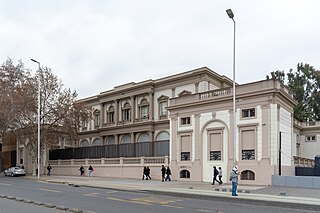
The Errázuriz Urmeneta Palace is a neoclassical-inspired building located at 1656 Libertador Bernardo O'Higgins Avenue in Santiago de Chile, in the heart of the Dieciocho neighborhood, a favorite place of Santiago's high society of the nineteenth century. It was built by the Italian architect Eusebio Chelli at the request of the surveyor and politician Maximiano Errázuriz Valdivieso in 1872. The mansion dazzled the society of the time with its luxury and was cataloged by many as the best house in Santiago, placing it above the Cousiño Palace.
Sight 19: Edificio Tucapel Jiménez
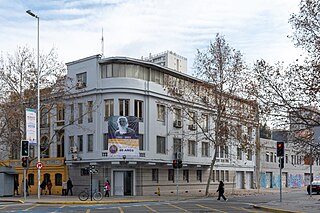
The Tucapel Jiménez Building is the headquarters of the National Association of Fiscal Employees (ANEF). Located on Avenida Libertador General Bernardo O'Higgins, in the center of the city of Santiago, Chile, the building was declared a national monument of Chile, in the category of historical monument, by Decree No. 346, of December 1, 2016.
Sight 20: Palacio Rivas
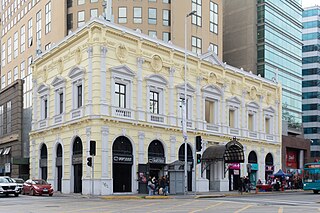
The Rivas Palace, also called Casa Rivas, is a building located in Santiago de Chile. In 1983 it was declared a National Monument.
Sight 21: Centro Cultural Palacio de La Moneda
Get Ticket*Centro Cultural Palacio de La Moneda is a cultural facility located in Santiago, Chile, under Plaza de la Ciudadanía, in the southern façade of the Palacio de La Moneda. It is intended to place the Chilean capital in the international cultural circuit, allowing participative and formative access for all citizens to the cultural and audiovisual richness of the nation.
Sight 22: Bandera Bicentenario
The Bicentennial Flag is a monumental Chilean flag located in the central flag of the Alameda del Libertador Bernardo O'Higgins, in the Plaza de la Ciudadanía, located in the city of Santiago, capital of Chile.
Sight 23: Casa Central Universidad de Chile
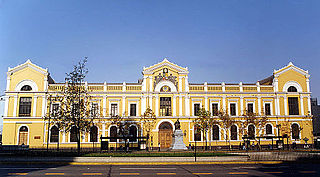
The Casa Central de la Universidad de Chile, also known as Palacio de la Universidad de Chile, is the main building for the Universidad de Chile, and is located at 1058 Alameda Libertador Bernardo O'Higgins, in Santiago, Chile. The building dates from 1872, and currently houses the rectorate, rooms used for ceremonial events and the university's Andrés Bello Archives. It was declared a National Monument of Chile in 1974.
Sight 24: Memoria Visual de una Nación
Visual Memory of a Nation is a mural made by the Chilean painter Mario Toral, of 1200 square meters, thematically divided into two parts: Past and Present, which correspond to the eastern and western sectors of the Universidad de Chile station at the level of the platforms, separated by the mesanine. The great pictorial piece recreates as a "true visual narrative" the general history of Chile, rescuing its most significant milestones from the perspective of the artist, who develops a work heir to the Latin American mural tradition, founded in Mexico at the beginning of the twentieth century.
Sight 25: Edificio Ariztía
Edificio Ariztía is a building located at 52 Nueva York Street in downtown Santiago, Chile, on a wedge-shaped city block. It was completed in 1921 and is considered the first "skyscraper" in Santiago. The building, constructed in reinforced concrete, was the first office building in Santiago with an elevator.
Sight 26: Antigua Iglesia de Las Agustinas
The Iglesia de las Agustinas is a Catholic church, located in downtown Santiago, Chile. The church was declared as a National Monument in 1977.
Wikipedia: Iglesia de las Agustinas (Santiago de Chile) (EN)
Sight 27: Church of Saint Augustine
Iglesia de San Agustín — Our Lady of Grace, commonly known as Church of St Augustine or Templo de San Agustín, is owned by the Order of Saint Augustine. It is a Catholic church, located at the southeast corner of Agustinas and Estado streets, in downtown Santiago, Chile.
Sight 28: Cristo de Mayo
The Lord of Agony, popularly known as Christ of May or Lord of the Tremors, is a venerated wooden crucifix of Chilean Baroque and colonial sacred art, guarded by the Augustinian friars in the Church of San Agustín. The sculpture was carved in 1613 by Fray Pedro De Figueroa O.S.A. and was the first by a known author in Chile. After the Earthquake of 1647, an annual procession began that became the oldest tradition in the country. The figure has also been related to Catalina de los Ríos y Lísperguer.
Sight 29: Teatro Municipal de Santiago
The Teatro Municipal, National Opera of Chile is the most important stage theatre and opera house in Santiago, Chile.
Sight 30: Basílica de la Merced
The Basilica de la Merced is a basilica located in Santiago, Chile. It was founded by the Order of the Blessed Virgin Mary of Mercy, has its origin in the third temple of the Basilica of La Merced that was in this site, built in 1760, its first tower was built in 1859 and its second tower in 1885 completing the building. It is a Chilean National Monument.
Sight 31: Monumento a la Libertad Americana
The Monument to American Freedom is a marble sculpture located in the center of the Plaza de Armas in Santiago, Chile. The work of the Italian sculptor Francesco Orselino, it was commissioned by the diplomat Francisco Javier Rosales in 1827, and installed in the square by decree authorized by Diego Portales on April 25, 1836.
Sight 32: Pedro de Valdivia
The equestrian statue of Pedro de Valdivia, located in the Plaza de Armas of the city of Santiago, Chile, is a bronze sculpture that represents the conquistador Pedro de Valdivia with the founding act of the capital. The work of sculptor Enrique Pérez, it was inaugurated on July 25, 1963 in its original location at the northern access to Santa Lucía Hill.
Sight 33: Museo Histórico Nacional
The Palacio de la Real Audiencia de Santiago is a building located in the north central village of the Plaza de Armas in Santiago, Chile. The building dates back to 1808 and houses, since 1982, the National History Museum of Chile.
Sight 34: Museo de Arte Sagrado
The Museo de Arte Sagrado is a religious art museum located in Santiago, Chile. The museum is located behind the Santiago Metropolitan Cathedral, and features a courtyard and colonial architecture. The museum features a collection of Jesuit silverware and religious paintings, sculpture, and furniture.
Sight 35: Museo de Bomberos de Santiago (MUBO)
The Santiago Firefighters Museum (MuBo) is a cultural institution located in the district of Santiago Centro, in Santiago de Chile.
Sight 36: Palacio Huneeus Valdés
The Huneeus Palace, also called the Huneeus Valdés Palace, is a building located in the center of Santiago de Chile, in front of the building of the former National Congress of Chile and next to the homonymous building, separated from it by the Jorge Huneeus passage, adjoining to the east with the García de la Huerta Izquierdo Palace. Its construction is attributed to the architect Fermín Vivaceta.
Sight 37: Palacio Edwards
The Edwards Palace, also known as the September Club Palace, is a property located in Santiago de Chile, specifically on the northeast corner of Catedral and Morandé, in front of the gardens of the former National Congress building.
Sight 38: Palacio de los Tribunales de Justicia
The Palacio de los Tribunales de Justicia de Santiago is the building housing the Supreme Court of Chile, the Court of Appeals of Santiago, and the Court-martial Court of the Chilean Army, Chilean Air Force and Carabineros de Chile. It occupies a full block-front of Compañía Street between Bandera and Morandé Streets. The building diagonally faces the Palacio de la Real Aduana, which houses the Museo Chileno de Arte Precolombino, and Montt Varas Square sits in front.
Wikipedia: Palacio de los Tribunales de Justicia de Santiago (EN), Website
Sight 39: Museum of Precolombian Art
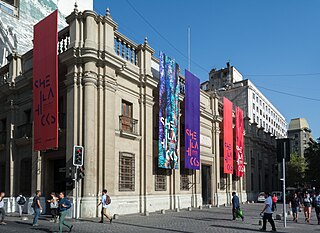
The Chilean Museum of Pre-Columbian Art is an art museum dedicated to the study and display of pre-Columbian artworks and artifacts from Central and South America.
Sight 40: Museo Numismático
The Numismatic Museum of the Central Bank of Chile is a museum located in Santiago de Chile, dedicated to exhibiting the history of banknotes and coins in the country as well as a collection from different countries. It was inaugurated on May 18, 2012. Previously, during the 1980s, the "Museum of the Monetary History of Chile" existed in the Central Bank, a project that had begun in October 1974 and whose director around 1981 was Ambrosio Andonaegui, and which was not open to the public.
Wikipedia: Museo Numismático del Banco Central de Chile (ES), Website
Sight 41: Plaza de la Constitución
The Plaza de la Constitución is a plaza occupying a full square block in the heart of the civic district of Santiago, Chile. It is located in front of the northern facade of the Palacio de la Moneda and is surrounded by other government buildings such as those housing the Ministry of Finance, Ministry of Foreign Affairs, Ministry of Justice, Banco Central de Chile and the Intendencia de Santiago. The square is bounded by Moneda Street on the south, Morandé Street on the east, Agustinas Street on the north, and Teatinos Street on the west.
Sight 42: Museo del Ahorro
The BancoEstado Savings Museum is a Chilean museum founded by Banco del Estado in 1990 and inaugurated on December 22, 1992, and is located in the bank's headquarters at 25 Morandé Street, 2nd underground, in front of the Plaza de la Ciudadanía.
Sight 43: Salvador Allende Gossens
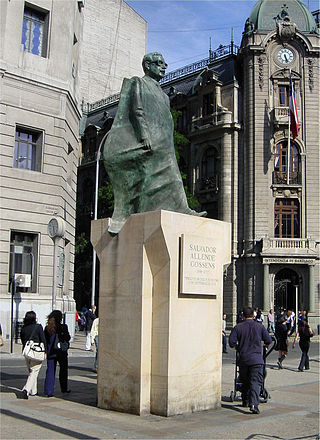
The monument to Salvador Allende is a bronze sculpture located in the Plaza de la Constitución del Palacio de La Moneda, in Santiago de Chile inaugurated in 2000 as a tribute to President Salvador Allende in his birth. The 3 -meter sculpture was sculpted by the artist Arturo Hevia. Its inauguration was carried out with the presence of President Ricardo Lagos.
Wikipedia: Monumento a Salvador Allende (Santiago de Chile) (ES)
Sight 44: Edificio de la ex Caja de Crédito Hipotecario
The edificio de la ex Caja de Crédito Hipotecario is a building located at 1234 Huérfanos Street, in downtown Santiago, Chile. Designed by architect Ricardo Larraín Bravo, it was built between 1915 and 1920 for the Caja de Crédito Hipotecario, and as of 2016, it serves as the seat of the Tribunal Constitucional.
Wikipedia: Edificio de la ex Caja de Crédito Hipotecario (EN)
Sight 45: Palacio Matte
The Matte Palace is a Chilean building located at 1413 Compañía de Jesús Street on the corner of Amunátegui Brothers, in the Metropolitan Region of Santiago, in the district of Santiago.
Sight 46: Palacio Ruiz-Tagle ( Edificio Grand Capital)
The Ruiz-Tagle Palace is a building located in Santiago de Chile, specifically on Calle Catedral nº 1402, on the corner of Hermanos Amunátegui, a short distance from the Santa Ana Church.
Sight 47: Iglesia Parroquial de Santa Ana
The Iglesia de Santa Ana is a Catholic church in downtown Santiago de Chile. It is located at the northwest corner of Catedral and San Martín streets. The church was declared as a National Monument of Chile in 1970, within the category of Historic Monuments. Santa Ana metro station is named after the church.
Sight 48: Teatro Teletón
The Telethon Theater is a theater in the city of Santiago de Chile, owned by the Telethon Chile Foundation. It is located on Mario Kreutzberger streets, almost on the corner with San Martín, near the Santa Ana Metro station, and next to the Central Highway.
Sight 49: Plazuela Griselda Hinojosa Flores
Sight 50: Plaza Brasil
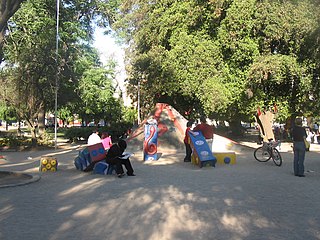
Plaza Brasil is located in Barrio Brasil, a neighborhood of Santiago, Chile known for its strong artistic and cultural scene. The square is bordered by Avenida Brasil to the east, Huérfanos street to the south, Compañía de Jesús street to the north and Maturana street to the west. Access to the square is via the Cumming station of the Santiago Metro.
Share
Disclaimer Please be aware of your surroundings and do not enter private property. We are not liable for any damages that occur during the tours.
GPX-Download For navigation apps and GPS devices you can download the tour as a GPX file.
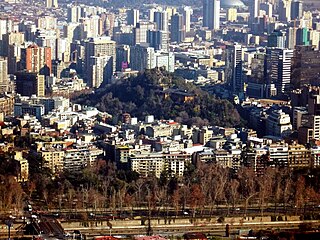
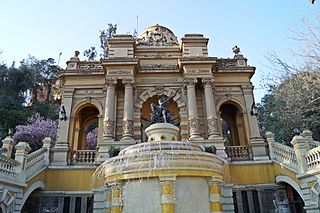
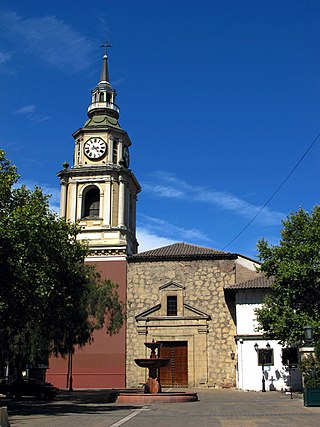
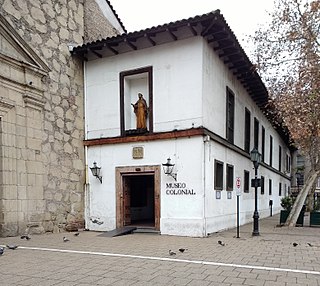
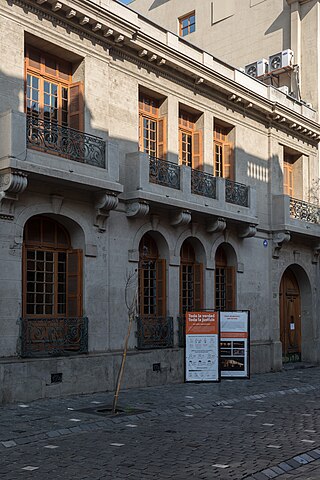
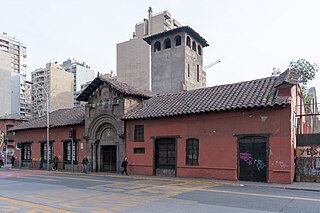
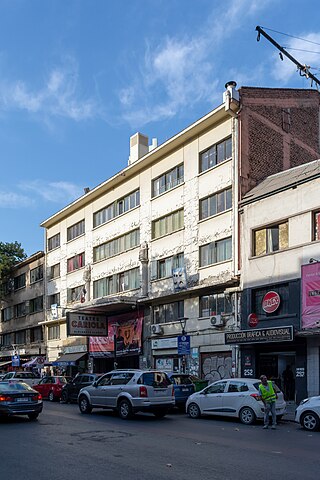
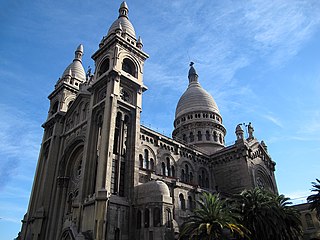
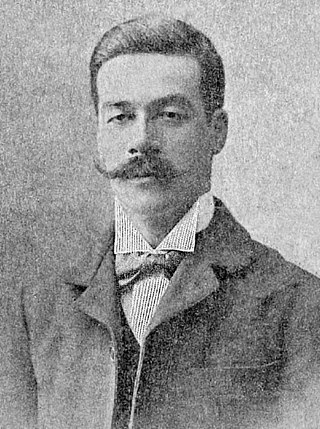
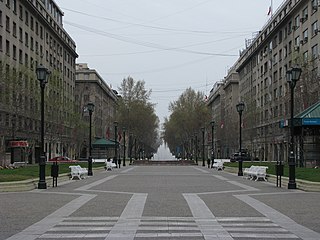
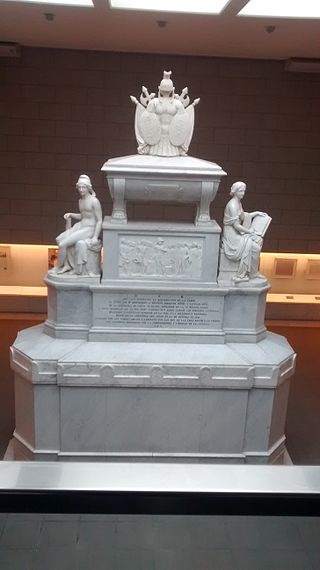
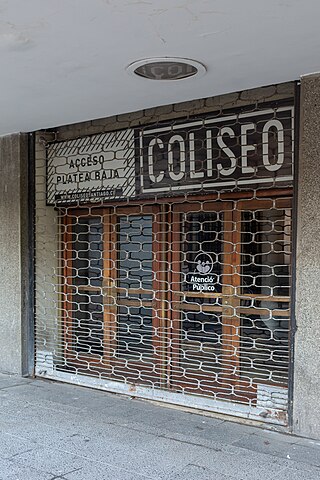
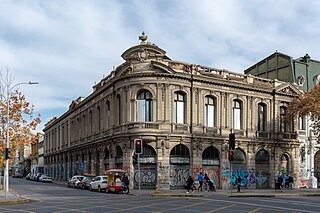
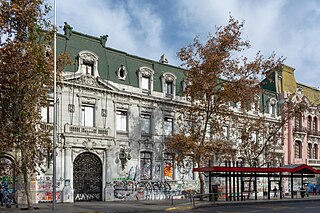
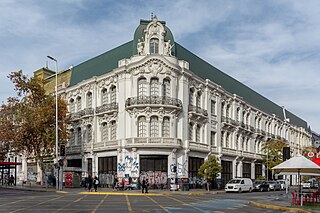
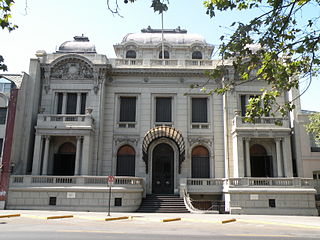
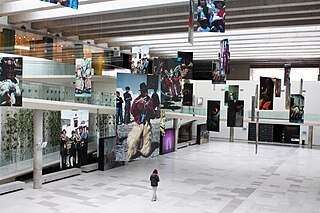
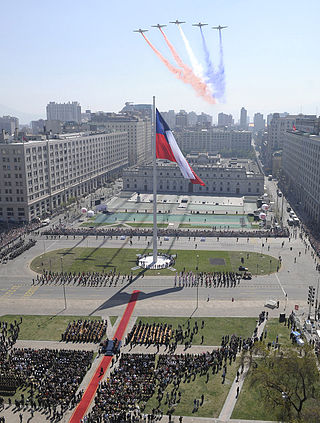
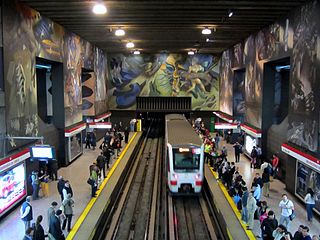
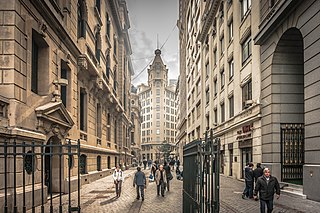
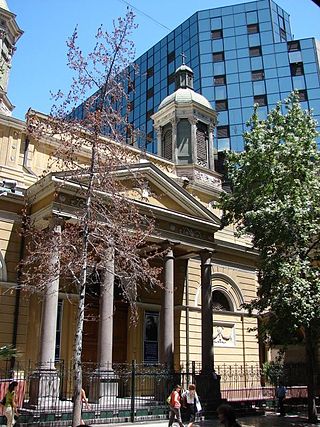
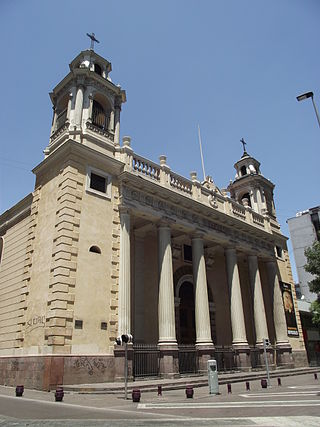
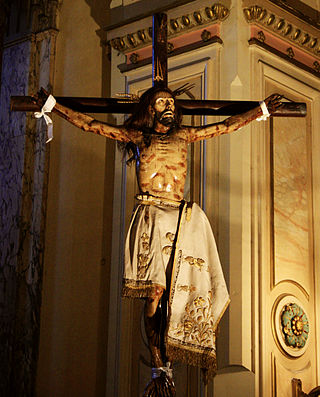
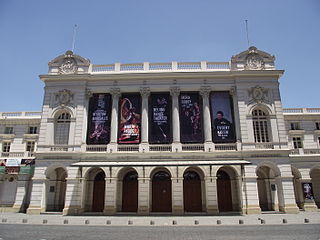
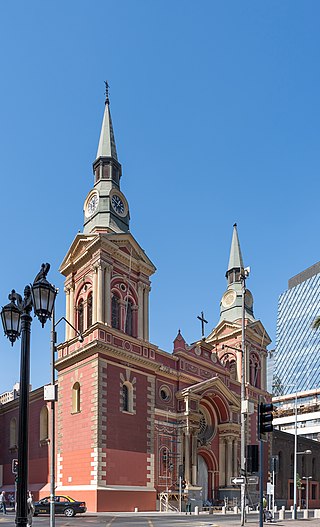
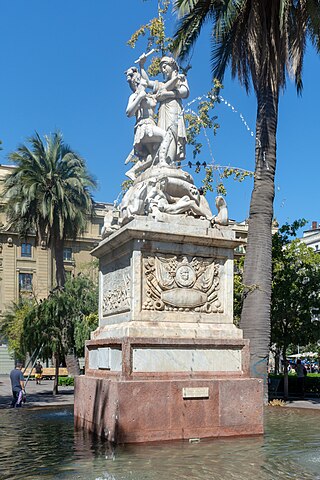
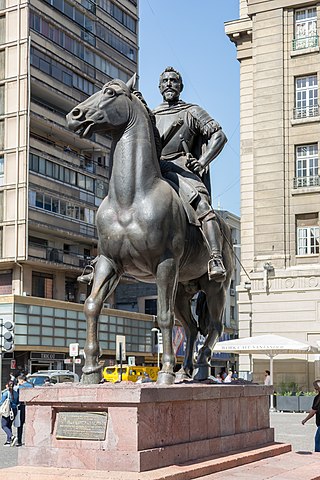
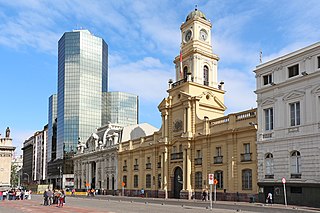
.jpg)
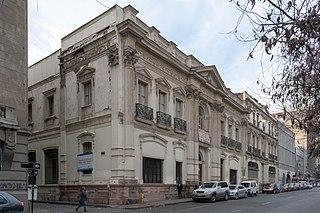
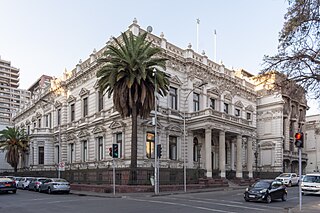
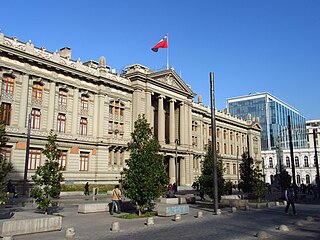
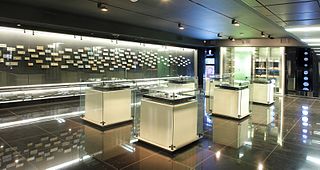
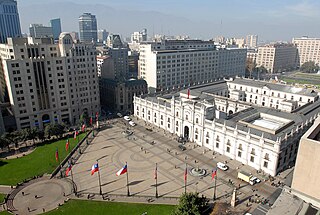
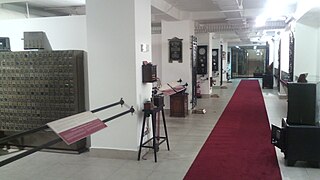
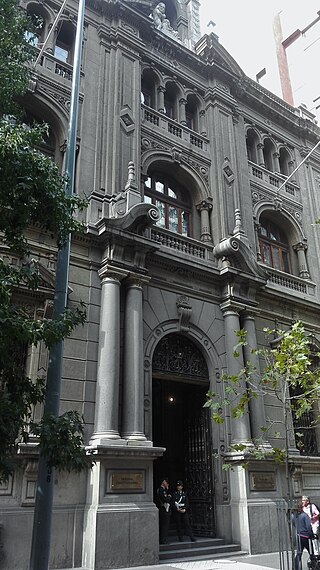
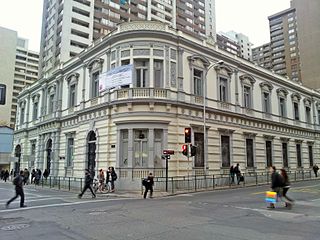
.jpg)
